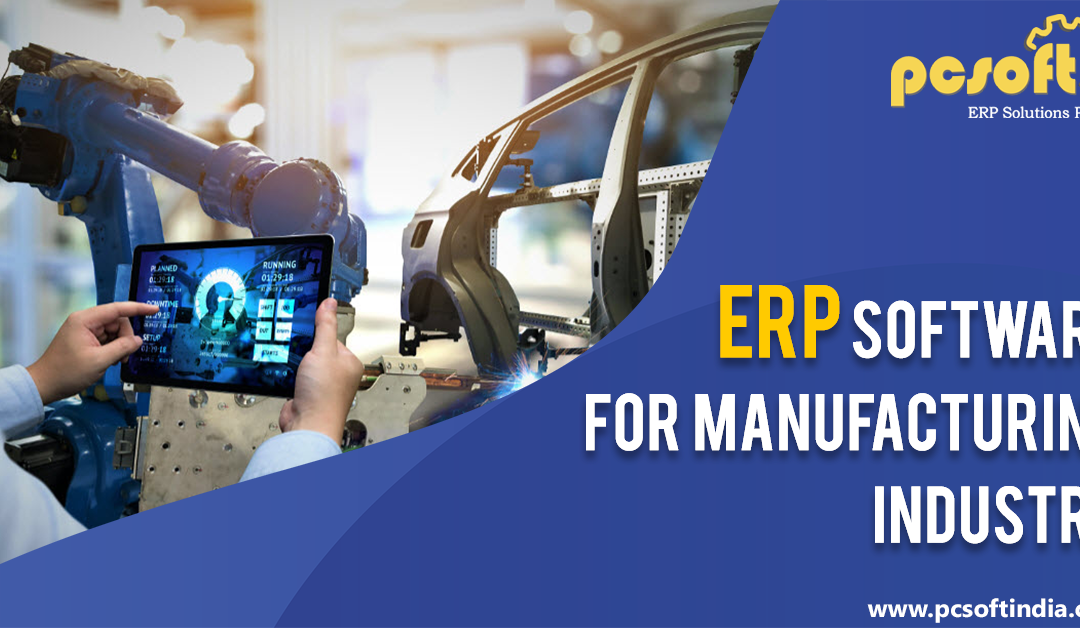PCSOFT has developed pre-configured ERP renditions for a variety of Industrial Verticals that helps manufacturing enterprises stay agile and competitive. PCSOFT recognizes that manufacturing processes across varied industries differ in terms of their unique requirements. Each rendition has been crafted according to the idiosyncrasies of a specific vertical. This approach is advantageous as it solves your business challenges; henceforth is more time efficient. Whether you’re a pharmaceutical giant, an auto parts supplier or simply, an assembly setup, PCSOFT can provide you with an ERP rendition that has been pre-configured specifically for you.
Typically, an ERP combines several multiple traditional management functions into a logically integrated system, in order to facilitate the flow of information across these functions. It is designed to model and automate basic processes across the organization over a centralized database and simultaneously, eliminates the need of disparate systems maintained by various units of the organization.
An ERP system is composed of a variety of applications and tools. These tools help all areas of your business communicate effectively with each other. Within the ERP system, all data is available in real-time, which enables employees to make faster, more informed business decisions. The right ERP system can help you collect and store data into centralized place from the following areas:
-
Finance and Accounting
-
Human Resources
-
Customer Relationship Management
-
Production Management
-
Business Intelligence
-
Warehouse Management
-
Inventory Management
-
Supply Chain Management
-
Point-of-Sale (POS)
-
E-commerce
It is important to ask ourselves why businesses of all sizes are implementing the ERP system more today, than ever before. Listed below are some primary reasons and benefits as to why organizations use ERP systems:
- Business Integration and Improved Data Accuracy: The ERP framework is composed of different modules/sub modules where a module represents a specific business segment. If data is entered in one module, for instance, ’receiving’, it automatically updates other related modules — for instance — ‘accounts payable’ and ‘inventory’. This update occurs at a real time, i.e., at a time the transaction occurs. Since data only needs to be entered once, at the origin of the transaction, the need for multiple entries of the same data is eliminated. The probability of errors in the data is far less. The centralized structure of the database also enables better administration and security arrangements that minimize the loss of sensitive data.
- Planning and MIS: Numerous decision support tools, such as, planning engines and simulations functions forms an integral part of an ERP system. They help in the proper utilization of resources like, materials, human resources and tools. Constrained based planning helps in drawing appropriate production schedules. As a result, the operations of plant and equipment are improved. As a part of a Management Information System (MIS), an ERP system is composed of many inbuilt standard reports as well as a report writer that produces ad hoc reports, as and when needed.
- Improved Efficiency and Productivity: If/when implemented, the ERP system provides a tremendous boost to the efficiency of routine transactions — order fulfillment, on time shipment, vendor performance, on time shipment, quality management, invoice reconciliation, sales realization, and cash management. The Cycle time for sales to cash is reduced.
- Integrated ERP: The cloud has enabled ERP to become more integrated with other business systems such as E-Commerce. Integrating our ERS in your E-Commerce portal is a smart idea, as it acts as a medium between your commercial site and the backend (accounting and inventory). This combination is extremely efficient as it ensures the bidirectional flow of information. By taking advantage of these benefits, clients can increase the overall experience of their customers and also achieve efficiency in operations.
- Reduced Costs: ERP software helps manufacturing organizations to reduce the overall operational costs as manual, time-consuming processes are replaced by automated, streamlined processes with real time business information. By increasing worker productivity, the ERP system reduces labor costs.
As listed above, the benefits of implementing an ERP system for manufacturing businesses are plenty — simply deploying any software will not help you achieve your organization goals. It is important to partner with an experienced ERP solution provider to implement the right software for your business.



